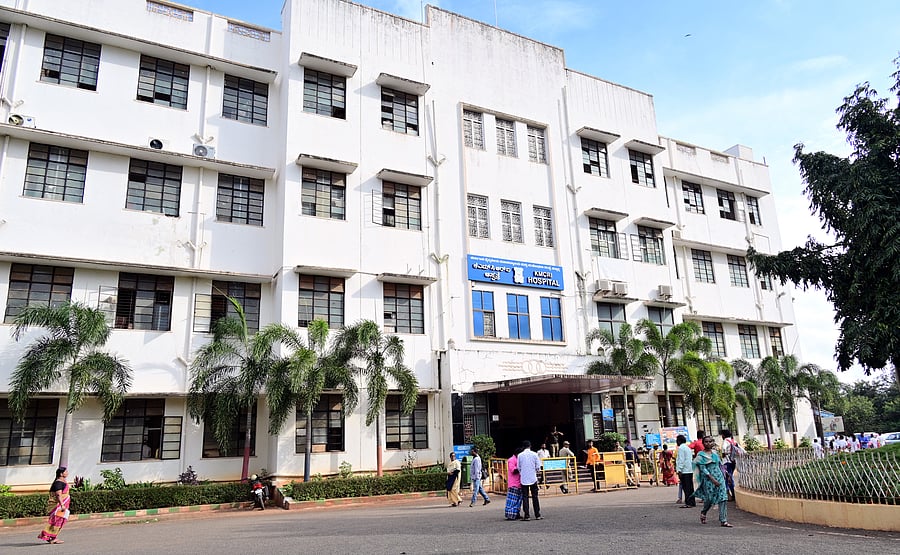
KMC-RI Hospital in Hubballi.
DH Photo
Karnataka Medical College and Research Institute (KMCRI) is getting cutting-edge medical technology to ensure superior healthcare service to the patients of the region. The state government, in its recent cabinet meeting, allocated Rs 21.40 crore to procure magnetic resonance imaging (MRI) machines for Hubballi Chikkaballapur. Thus, KMC-RI will shortly get a second MRI machine.
The KMC-RI hospital having 2,000 beds gets around 1,600 out patients on a daily basis and around 400 patients get admission to the in-patient department. As of now the institute has one CT scan and one MRI scan machine. About 90 CT (computed tomography) scans were done on a daily average, and 30 to 35 MRI scans are being done daily. However, with one MRI scan machine, and one CT scan machine, it is not possible to cater to the needs of the increasing number of patients.
According to sources, the cost of the MRI and CT scans are much less than the ones being done in the private hospitals.
Hence, even the number of out-patients for MRI and CT scan is increasing day by day. Due to the single machine
system, there is a long waiting period for the out-patients. Even out-patients have to wait for days to get their turn for MRI scans.
KMCRI Medical Superintendent Ishwar Hasabi said we give top priority for in-patients in MRI and CT scan sections. Therefore, they need not have to wait for long in the scanning sections.
“There were two CT scan machines, but one is defunct due to technical snag. The non-functioning CT scan machine will be replaced and the tender process is underway for this. We had sent a proposal to the government demanding another MRI machine, and the government recently approved the proposal. Soon the institute will have two CT scans and two MRI machines. Thus, out-patients too need not have to wait for long hours to get the scanning,” he explained.
Recently, the institute got Digipla 90 Therapeutic Plasma Exchange (TPE) machine under the Corporate Social Responsibility (CSR) fund. To treat various neurologic and non-nurologic diseases, the TPE machine has been used. The patient’s blood is passed through the machine, where the filtered plasma is removed and discarded with reinfusion of red blood cells along with replacement fluid such as plasma or albumin into the patient.
Dr Hasabi said that few more advanced machines are being added to ophthalmology, ENT and general medicine departments. They have been trying to introduce the latest machines and equipment to improve the quality of treatment, he added.